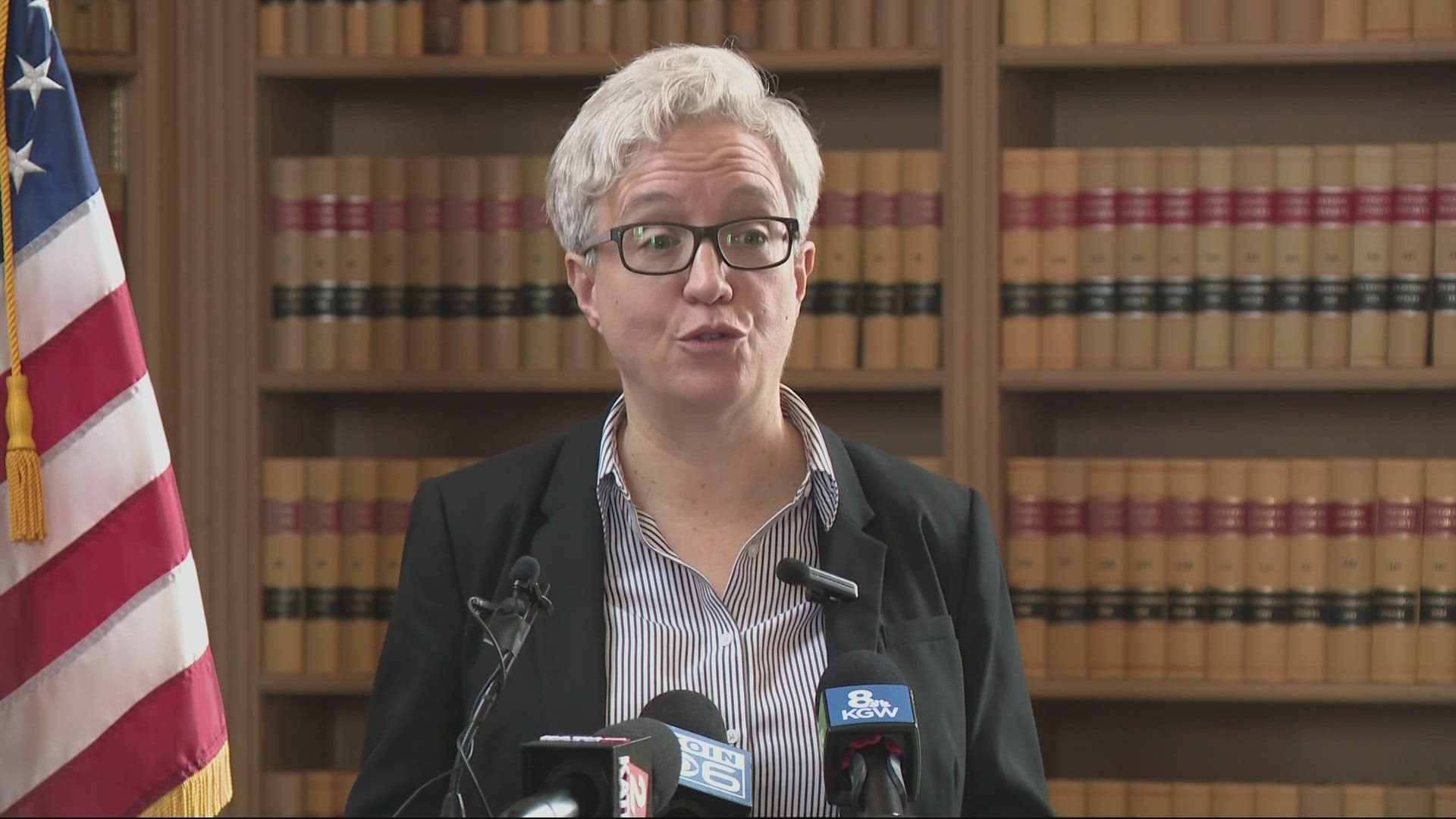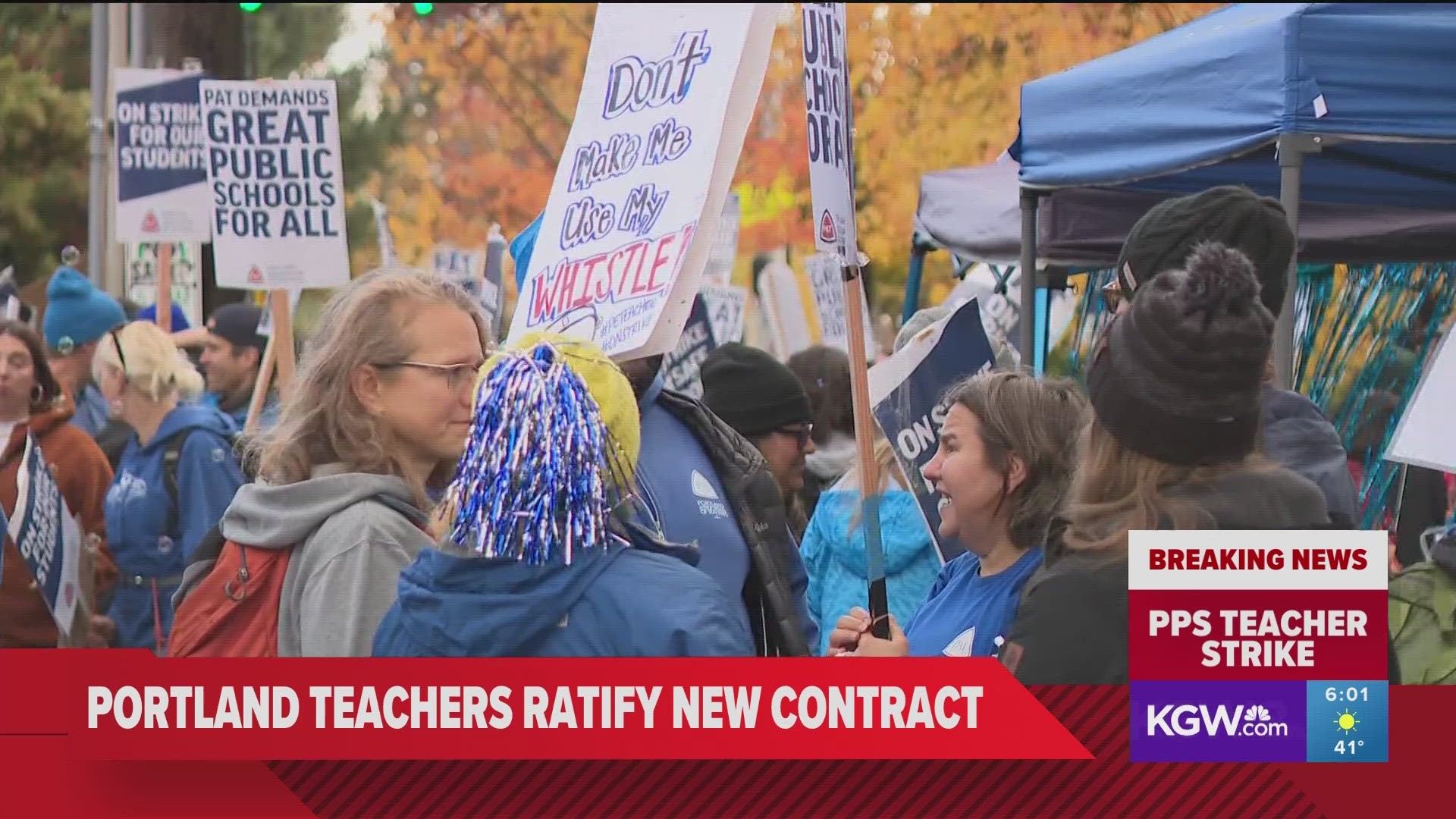PORTLAND, Ore. — The Portland teachers strike ended with a tentative deal on Sunday, paving the way for nearly 50,000 students to return to school for the first time since Halloween, but Oregon Gov. Tina Kotek signaled Tuesday that she wants to see political action in the wake of the strike and pledged to take steps to revamp the state's education funding model.
"The strike was a reflection of larger challenges that districts across the state are facing," she said in a statement, noting that one out of three Oregon districts will also be in contract bargaining during the current school year. "From salaries not staying competitive with the market, to backlogs in facility maintenance, to classroom disruptions related to the behavioral health needs of students, we clearly have work to do."
The full Portland Association of Teachers membership voted Tuesday afternoon to approve the tentative agreement with 95% in favor, according to a news release from the union. The Portland Public Schools board held its own vote at a meeting Tuesday evening, unanimously approving the deal — although questions remained about a make-up day schedule that cut winter break down by nearly half.
Ratification by both sides brings a formal end to the months-long bargaining process that culminated in the 26-day strike in the state's largest school district.
The strike was the first in PPS's history, and it also became the longest teacher strike in Oregon in at least the past two decades, and one of the longest in recent years nationwide. The average teacher strike lasts one week or less, according to Melissa Arnold Lyon of the Rockefeller College of Public Affairs and Policy at the University of Albany, SUNY.
The biggest sticking points that prompted the strike were staff salaries, class sizes, teacher planning time, student safety and discipline procedures and the physical condition of some of the district's buildings and classrooms. The district claimed in the weeks leading up to the strike that the two sides were $228 million apart in their proposals.
The tentative contract deal reached on Sunday will cost about $175 million over the next three years, PPS officials said this week, and will still require the district to make significant cuts. The officials reiterated calls for more state funding for education, after previously arguing during the strike that state lawmakers didn't put enough money into the state's education fund during the legislative session earlier this year.
Kotek said she supports the work of a legislative task force convened this year to study Oregon's teacher salary levels, and said lawmakers should consider the possibility of a statewide teacher salary schedule to create more predictability for school district budgets. She said her office will also take a more active role in education budgeting, directing the chief financial officer and Oregon Department of Education to work with lawmakers to revise the way Oregon funds schools.
"What we heard was 'current service level didn't do it,'" she said at a press conference on Tuesday. "We have outstanding needs around wage growth in our schools and related to contracts, so we have to, I think, take a deep dive on how we're doing our school funding formula."
Kotek also said she would convene a group of education leaders to develop a statewide action plan to "support the social-emotional health needs of students," referencing the setbacks that students suffered during the COVID pandemic and other recent school disruptions.
"We're heading of disturbances in classrooms, we're hearing of students not coming to school, we are hearing about the challenges that are left over from the pandemic and how it has impacted our young people," she said. "So we need to have a plan to strengthen the resources in our schools."
Kotek also said she plans to create an Office of Transparency within the education department to make school district data more accessible, referencing public confusion during the strike over the resources that PPS actually had available.
Oregon budgets on a two-year cycle, meaning the next big round of education funding from lawmakers won't be expected until the 2025 legislative session. Kotek's comments on Tuesday reflected that schedule; she said she wants to keep the focus on housing production and the homelessness during the upcoming 2024 session, but that her education plan would allow lawmakers to come into the 2025 session with a better understanding of what the state's school districts need.


